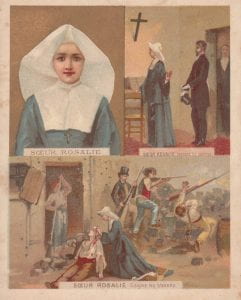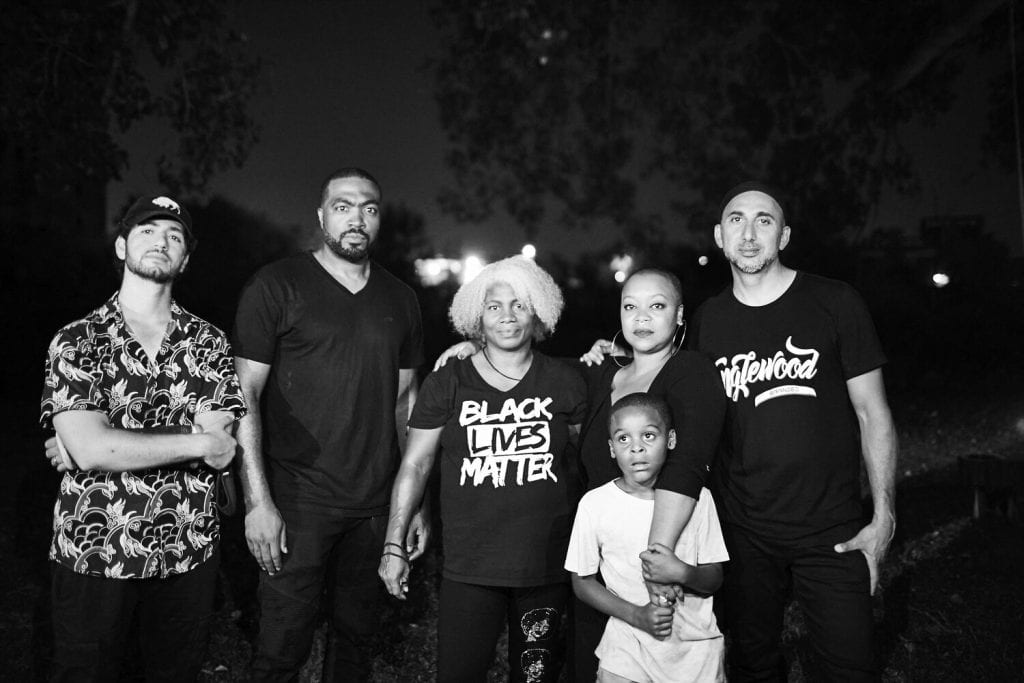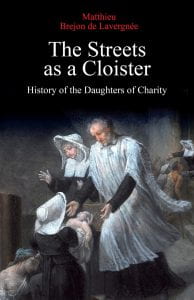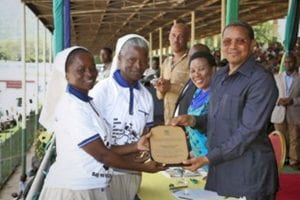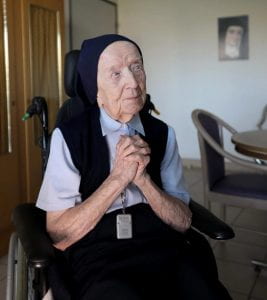 You may have recently seen the news that Europe’s oldest known person survived Covid-19, after having tested positive just weeks before her 117th birthday. That person, Sister Andre (Lucile) Randon, happens to be a Daughter of Charity, a member of the religious community founded by Louise de Marillac and Vincent de Paul in 1633. She became a nun in 1944 at the age of 40, after having lived through two world wars and the Spanish Flu pandemic. She devoted many of her years to working with children as a teacher and governess and spent over two decades working with orphans and the elderly in a hospital. Sr. Andre was quoted as saying, “I’m not afraid of dying, so give my vaccine doses to those who need them.”(1)
You may have recently seen the news that Europe’s oldest known person survived Covid-19, after having tested positive just weeks before her 117th birthday. That person, Sister Andre (Lucile) Randon, happens to be a Daughter of Charity, a member of the religious community founded by Louise de Marillac and Vincent de Paul in 1633. She became a nun in 1944 at the age of 40, after having lived through two world wars and the Spanish Flu pandemic. She devoted many of her years to working with children as a teacher and governess and spent over two decades working with orphans and the elderly in a hospital. Sr. Andre was quoted as saying, “I’m not afraid of dying, so give my vaccine doses to those who need them.”(1)
Her long life and generous spirit puts things into perspective and help us to recognize that this difficult period we are living through shall eventually pass.
I have heard it said that the difference between a child and an adult is that an adult knows a challenging moment will pass. If only it were that easy for us! Like a distraught child overcome by intense feelings, we often have difficulty seeing beyond our present situation. Feelings can overwhelm us, cloud our vision, and prevent our understanding the larger context. We forget that life is about more than our current reality and that time will surely change our perspective. Looking back on our lives, our thoughts about all we have experienced have certainly evolved and will do so again. Sr. Andre’s life can help remind us of this fact.
Over the course of our lives, we may fall into ruts. This may happen without our even being aware. The ruts may be habits or draining, even harmful, ways of seeing, thinking, acting, or relating with others. We may wake up days, weeks, months, or even years later, only to recognize we have gone astray and lost touch with our heart’s desire. In facing this, strong doses of humility and self-compassion are necessary and healing antidotes. Surely, in her long life, Sr. Andre learned many times of the need for forgiveness.
The examples of Vincent de Paul and Louise de Marillac also encourage us to take a long view on life. Vincent wrote to Louise: “The spirit of God urges one gently to do the good that can be done reasonably, so that it may be done perseveringly and for a long time.”(2) Louise, meanwhile, encouraged her fellow sisters by saying: “It is not enough to begin well, one must persevere, as, I believe, you intend.”(3) Keeping this perspective in mind, Sr. Andre’s example and the words of Vincent and Louise invite us to reconsider what it really means to live a good life.
Thinking of how we might look back on our life in old age, what can we do now to be able to someday say, as St. Paul did, and Sr. Andre might, “I have fought the good fight, I have finished the course, I have kept the faith?”(4)
How might our perspective of our current difficult reality shift or evolve with time? What can we forgive or let go of today to start anew or better move in the direction of our deepest hopes?
1) Elian Peltier, “As she turns 117, French nun is oldest to recover from virus,” New York Times; as published in the Chicago Tribune, Thursday, February 11, 2021, p. 11.
2) Letter 58, “To Saint Louise, In Beauvais,” CCD, 1:92. See: https://via.library.depaul.edu/vincentian_ebooks/25/
3) L.300, “To Sister Charlotte and Sister Françoise,” 17 March 1651, Spiritual Writings of Louise de Marillac, 346. See: https://via.library.depaul.edu/ldm/13
4) 2 Timothy 4:7.
Reflection by: Mark Laboe, Associate Vice President, Division of Mission and Ministry
